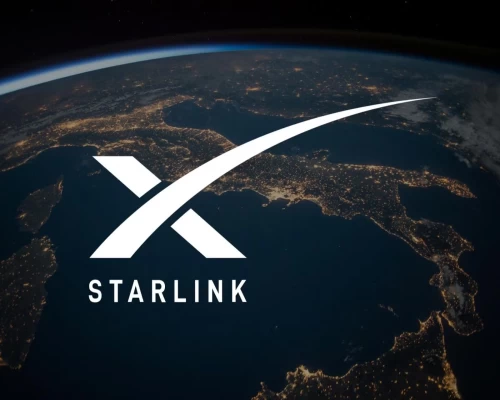
New Delhi: DeepSeek, founded in May 2023 by Liang Wenfeng, has quickly become a major player in the global AI market, offering innovative and cost-effective models that challenge U.S. tech giants like Microsoft and OpenAI. However, its rapid rise raises concerns about data privacy, security, censorship, and the reliability of its AI systems, presenting significant challenges to the industry.
DeepSeek has become a significant concern for data security and intellectual property protection. In late 2024, Microsoft and OpenAI launched an investigation after discovering suspicious activity that suggested individuals linked to DeepSeek were extracting large amounts of data from OpenAI’s systems via its API. This raised fears of a potential breach of intellectual property rights, which could severely damage both data security and the AI industry’s credibility. A key issue is DeepSeek’s suspected use of "distillation" techniques, where a smaller model is trained to replicate the knowledge of a larger one. This method could enable DeepSeek to reverse-engineer OpenAI’s models, potentially stealing proprietary technology and circumventing costly infrastructure investments. If these allegations are proven true, it could erode trust in AI systems, compromise user data privacy, and introduce ethical concerns. Businesses and users adopting DeepSeek’s technology may face risks like data breaches and manipulation, further damaging the industry’s integrity, as per the reported by silicon.co.uk
Another major concern surrounding DeepSeek is the potential for censorship and the overall reliability of its AI models. Due to China’s strict internet regulations and heavy government influence over domestic tech companies, there is growing apprehension that DeepSeek’s AI can be manipulated or censored to align with Chinese government narratives. This is particularly troubling when DeepSeek is deployed in markets with differing political and ethical standards. The risk of information being distorted to meet China's interests is high, especially when it comes to politically sensitive topics. DeepSeek has been criticized for its real-time censorship of certain issues, particularly those related to Taiwan, the Tiananmen Square massacre, and the treatment of Uyghur Muslims. When asked about these topics, DeepSeek has been known to scrub or alter its responses to align with the Chinese government’s approved narrative, presenting a sanitized version of historical events. This heavy censorship raises serious ethical concerns, particularly regarding the free flow of information.
By selectively filtering out politically sensitive content, DeepSeek potentially shape public opinion to Favor Chinese government policies, a practice that is problematic in democratic societies where free speech is vital. In addition to censorship, DeepSeek’s AI has been reported to fabricate expert names, quote non-existent sources, and present false information with authority. These issues undermine the credibility of the platform, especially when used by businesses or governments that require accurate and unbiased AI outputs. While DeepSeek’s low-cost solutions are attractive, they come at the expense of accuracy, reliability, and ethical standards. This combination of factors poses a national security risk, and critics have called for restrictions on the use of the platform due to the long-term consequences that could arise from its widespread adoption, as reported by voanews.com
DeepSeek's rapid rise poses a serious challenge to U.S. dominance in the AI sector, particularly through its low-cost models that disrupt pricing structures in the market. Companies like Microsoft and Google are being forced to reconsider their business strategies in response. While DeepSeek’s affordability is appealing, its models have been criticized for producing unreliable and often censored content. This raises concerns for businesses and governments that require trustworthy and unbiased AI outputs. Additionally, the increasing market share of DeepSeek has led to fears of job displacement, reduced innovation, and negative economic impacts on American tech companies. Though DeepSeek’s low prices make it attractive to certain markets, the trade-off in quality could harm its long-term viability. If these issues persist, it may force traditional AI companies to prioritize cost-cutting over technological advancements, affecting the industry’s overall progress.
DeepSeek's potential for digital surveillance is a major concern due to its ties to Chinese government-backed policies. The platform’s data collection practices, including storing user information on servers in China, raise alarms over privacy. Human rights activists warn that DeepSeek could expose users to the risk of surveillance by the Chinese Communist Party (CCP), potentially strengthening the regime’s digital control.
Critics says that DeepSeek may function as a tool for digital repression, as seen in its suppression of sensitive topics like the treatment of Uyghur Muslims in Xinjiang. The platform’s consistent avoidance of questions about controversial issues, such as Chinese actions in Xinjiang, has fuelled suspicions about its role in promoting Chinese state narratives. This behaviour has raised concerns over DeepSeek's contribution to limiting free speech and spreading politically biased information, which undermines the principles of openness and freedom of expression, as reported by msn.com.
DeepSeek's rise presents both opportunities and challenges. Its affordable AI models disrupt the global market, forcing competitors to rethink their strategies. However, concerns about censorship, data misuse, and unreliable models spark debates within the tech community. DeepSeek’s potential to manipulate public opinion and its security issues highlight the need for stronger global protections against data breaches and intellectual property theft. Its development underscores the vulnerability of the digital ecosystem, emphasizing the importance of robust international regulations in AI.
BI Bureau












